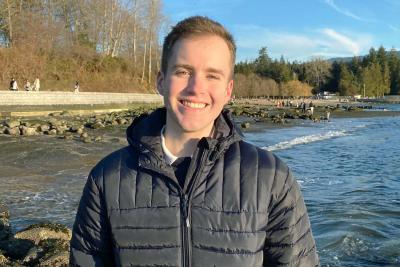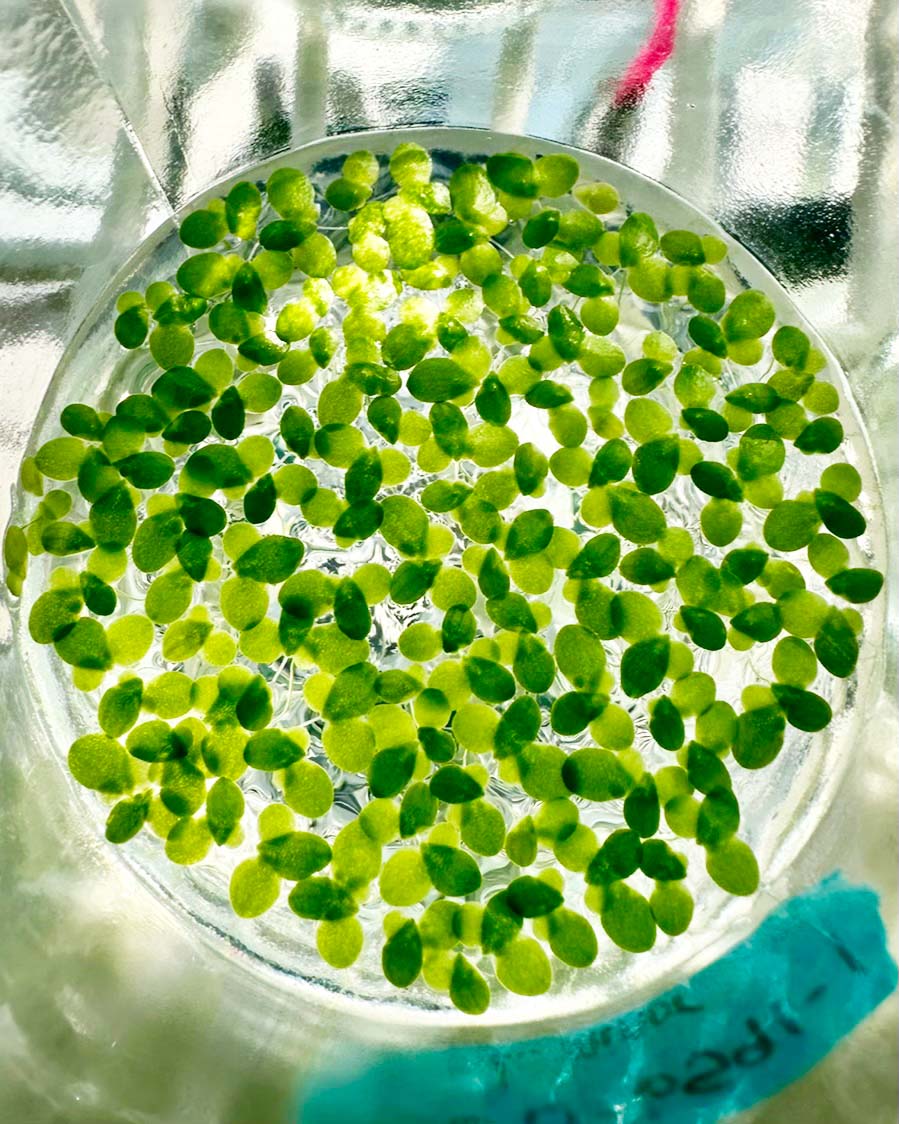Featured Student: Joshua Dyer
January 18, 2024

January 18, 2024

I'm in the Honours Environmental Science program, specializing in Ecology and Conservation, and will graduate in 2024.
I chose to enroll in co-op to explore different roles and careers within my field prior to graduation and to gain hands-on experience with some of the topics I had learned in the classroom.
I thought that co-op would be the perfect opportunity to strengthen a wide range of technical and soft skills that would aid my journey in both my academic and professional career.
I had a total of three placements.
For my first, I worked as a Priority Species GIS Analyst with the Canadian Wildlife Service at Environment and Climate Change Canada for eight months. During this role, we contributed to the recovery planning and conservation of Tier 1 Priority Species, mainly Woodland Caribou, Southern Mountain population, through biological and spatial data analysis.
My second placement was at Fisheries and Oceans Canada, where I worked as a Molecular Biology Research Assistant for four months in Nanaimo, BC. In this position, I assisted in large-scale genetics and genomics research on salmonoid species, where my primary responsibility was executing eRNA/eDNA extractions from water samples.
For my final four months of co-op, I worked as an NSERC USRA Ecology Research Assistant within the Germain Lab at UBC. During this role, I assisted graduate students with their research experiments that related to topics of species coexistence and coevolution. This position also led me to conduct my Honours thesis with the Germain Lab, where I am currently investigating the coevolution of duckweed species
My favourite experience in co-op was growing the duckweed for my experiment in my final placement.
During the summer, I received twenty-one different strains of duckweed and was responsible for growing their populations. Watching the baby duckweed grow from only a couple of fronds (each being only a few mm long) to eventually filling entire containers gave me a proud plant parent moment.

Although my time in the co-op program was filled with several personal and professional achievements, the one that sticks out the most would be obtaining a Natural Sciences and Engineering Research Council of Canada Undergraduate Student Research Award (NSERC USRA).
The funding provided by this award allowed me to complete my final co-op placement at UBC, while gaining insight and valuable research skills in an academic setting.
If students are interested in gaining undergraduate research experience, I highly recommend looking into an NSERC USRA.
Most importantly, I recommend taking the time to explore and read papers from faculty members to investigate topics in which you share similar interests. Once you’ve done so, I would then reach out to the faculty members and explain that you're interested in applying for an NSERC USRA. Describe how your interests align and ask if they would be interested in meeting to discuss their personal research and avenues of potential opportunity.
This is the process I undertook, which resulted in summer research and my Honours Thesis with Dr. Rachel Germain.
The biggest challenge that I experienced during co-op was moving to a new city for one of my placements.
In addition to the challenges of adapting to a new city, I quickly learned how different it can be to make friends in a work setting compared to a school setting.
To overcome these challenges, I pushed myself to explore my new environment in the evenings and on the weekends. I made friends with my colleagues by taking the initiative to plan after-work socials.
Prior to co-op, I often struggled with voicing my opinions and thoughts in professional and collaborative settings.
My placements required me to step outside of my comfort zone and confront the areas in which I felt intimidated in my early career. Thanks to the supportive and comforting nature of my team, I gained the confidence to express personal insights, as well as share my interpretations of scientific findings in both independent and collaborative settings.
I'm also beyond grateful for the workshops and one-on-one guidance provided for crafting cover letters and resumes. Thanks to my coordinators, I realized that I had more skills than I previously considered.
Before joining the co-op program, I had a general sense of the field that I wanted to work in, but didn’t fully understand what specific opportunities were available.
Co-op offered the chance to complete three different placements, gain exposure to multiple professional environments and chat with colleagues at each. I gained more insight into what my future career can entail and which steps I can take to get there.
I gained a lot of new insights during my time with ECCC. Before joining the organization, I knew that I was interested in animal ecology and the impact of human activities on the environment. However, I was unaware of how these fields integrate into practice and the associated career opportunities that exist. While working with ECCC and networking with my colleagues, I discovered the exciting career paths offered in the field of animal conservation.
One of the most memorable experiences during my time at ECCC, was working on an independent research project. The project involved investigating the temporal range retraction of the threatened Woodland Caribou, Southern Mountain population. By compiling caribou observations over time, the data displayed a substantial reduction in their range, highlighting the critical influence of natural and human disturbances on this essential and culturally significant species. This visualization, in tandem with the knowledge and guidance I received from my colleagues, certainly inspired my decision to pursue wildlife conservation after I graduate.
My role at ECCC heavily relied on analyzing the biological and spatial data of species at risk. As a result, having experience in coding languages and spatial software was immensely beneficial.
In particular, the data analysis skills and techniques I learned from CONS 340 and GEOS 370 (GIS courses), along with proficiency in navigating the ArcGIS Pro interface, were instrumental in preparing me for this role. In addition, BIOL 300 (Biostatistics) was extremely helpful, as it introduced me to the coding language of R.
My role was quite intriguing at the DFO.
Although I didn't work directly with wild salmon populations, we utilized environmental samples (i.e., water samples) to answer scientific queries instead.
As living organisms naturally release their DNA into the surrounding medium, we could collect information about wild salmon populations by sampling the water in their environment. Nevertheless, I learned that salmon species play ecological, economic and culturally essential roles in British Columbia.
My first piece of advice for future co-op students would be to network with colleagues working in areas that interest you.
I found that many of my colleagues were eager to chat about their work and the steps that they took to get where they are today. Next, I would strongly encourage future co-op students to make the most of their time in the program because let me tell you – it flies by!
Lastly, I can’t emphasize enough the importance of asking questions. At the end of the day, the co-op program is an opportunity to learn from those in the field and asking questions is how you learn and improve.
I am looking forward to pursuing further post-secondary education and advancing the foundational skills and experiences that the co-op program provided.
I plan to obtain a Master of Science and a professional designation of Registered Professional Biologist, to pursue a career in wildlife conservation that focuses on threatened species.
With my combination of education and work experience, I can offer insights to inform and shape future conservation initiatives.
We honour xwməθkwəy̓ əm (Musqueam) on whose ancestral, unceded territory UBC Vancouver is situated. UBC Science is committed to building meaningful relationships with Indigenous peoples so we can advance Reconciliation and ensure traditional ways of knowing enrich our teaching and research.
Learn more: Musqueam First Nation